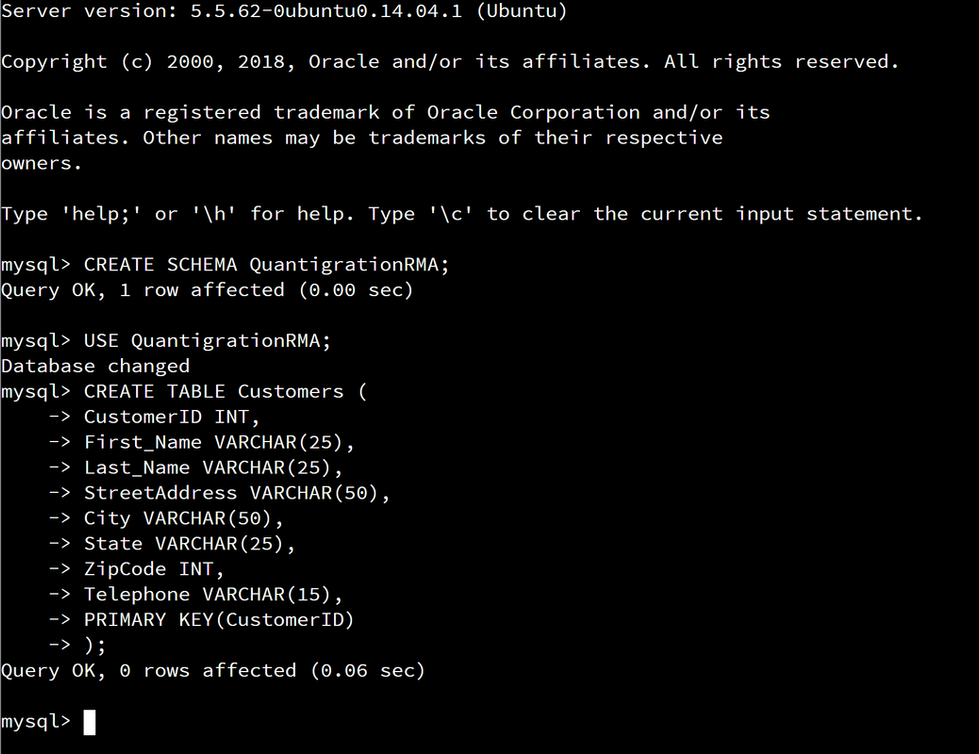Create Your First Project
Start adding your projects to your portfolio. Click on "Manage Projects" to get started
Fall 2023 - Introduction to Structured Database Environments - Analyzing SQL Databases
Project Type
Analyzing SQL Databases
Date
Fall 2023
Course: Introduction to Structured Database Environments
Tools Used: MySQL, SQL querying
Project Overview
In this project, I was tasked with analyzing return data for a fictional company using a structured SQL database called Quantigration RMA. The goal was to extract, join, and aggregate information across multiple relational tables (Orders, RMA, and Customers) to support the product manager in identifying return trends by state and product type.
Key Objectives:
Identify the number of product returns by state
Analyze return frequency by product SKU
Calculate return percentages by product type
Communicate insights and limitations for stakeholder decision-making
Using SQL queries, I uncovered that Massachusetts had the highest number of product returns, and the Enterprise Switch 10GigE SFP+ 48 port (SKU: ENT-48-10F) was one of the most frequently returned items. Further analysis revealed that over 22% of returns were associated with a single SKU — BAS-48-1 C, indicating a potential product quality issue.
What I Learned:
How to write and optimize SQL JOIN and GROUP BY queries across multiple tables
The importance of data cleaning and structure in relational databases
How to turn raw SQL outputs into clear summaries for non-technical stakeholders
That context matters — while the data showed high return rates, it lacked detail on why returns occurred, emphasizing the need for better data design
Reflection:
This was one of my first projects working directly with a real-world style SQL database. It helped me build confidence in querying and analytical thinking, and it highlighted how critical thoughtful data structure and reporting are when supporting business decisions. This assignment laid the groundwork for deeper, more refined data projects I would take on later in my degree.



















